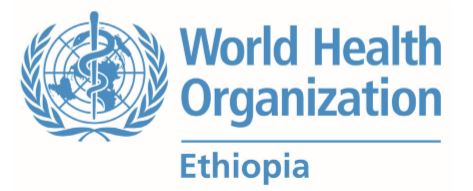A national dissemination workshop held on May 27, 2025, in Addis Ababa brought together government officials, health experts, and development partners to review the findings of a comprehensive assessment of Ethiopia’s electronic Logistics Management Information System (eLMIS), known as Dagu. The system is designed to enhance visibility and improve efficiency throughout the country’s health supply chain.
Opening the event, the World Health Organization (WHO) Ethiopia Dr Patrick Okumu Abok, Team Lead, Health Emergencies Programme, commended the collaborative efforts that led to the successful completion of the nationwide assessment, which covered 251 public health facilities. The study evaluated the functionality, maturity, utilization, and impact of the Dagu system on health and nutrition commodity availability, inventory management, and decision-making processes.
The event and the nationwide assessment were funded by the European Civil Protection and Humanitarian Aid Operations (ECHO), reaffirming the EU’s longstanding commitment to supporting Ethiopia’s health system strengthening and digital transformation.
“This event marks a significant milestone in our collective effort to build a more resilient, data-driven supply chain for Ethiopia,” said Dr Patrick. “Dagu is helping health facilities deliver essential medicines, nutrition commodities and health supplies more reliably—and the data proves it.”
According to the assessment findings, 63.7% of health facilities currently operate functional Dagu systems. These facilities demonstrated improved pharmaceutical availability—with an average availability rate of 88.3% for tracer medicines—highlighting Dagu’s positive contribution to medicine access across the health system.
Despite the progress, the assessment also highlighted several challenges, including infrastructure limitations, intermittent internet access, limited management engagement, and human resource constraints, particularly in areas such as training and staff retention. The study identified that facilities with trained pharmacy heads and reliable internet access were significantly more likely to operate functional Dagu systems.
The Ministry of Health emphasised the government’s continued commitment to scaling up digital health innovations, such as Dagu, to achieve better health outcomes.
“This assessment reinforces what we’ve known—Dagu has the potential to transform our supply chain. But it also reminds us that sustainability requires more than just systems; it requires leadership, accountability, and integration,” said Teshome Deres, senior advisor for the state minister of the Ministry of Health. “We are committed to working with our partners to ensure Dagu reaches its full potential across all health programs.”
The workshop emphasized the importance of transforming these insights into action. Recommendations put forth include:
- Strengthening infrastructure and digital connectivity at health facilities
- Institutionalizing routine performance monitoring
- Enhancing interoperability with other national health systems like DHIS2 and ERP
- Introducing legal frameworks to support mandatory system use
- Expanding Dagu’s coverage to all health programs, including those currently underrepresented such as EPI and nutrition
The event was supported in partnership with the Ministry of Health, Ethiopian Pharmaceutical Supply Service (EPSS), and the Dagu Task Force, with the support from Clinton Health Access Initiative (CHAI), ECHO, Results for Development (R4D), and WHO.
With a strong political commitment and coordinated implementation, Ethiopia’s journey toward a more efficient and equitable health supply chain continues—powered by innovation, data, and partnerships.
Distributed by APO Group on behalf of World Health Organization (WHO) – Ethiopia.


